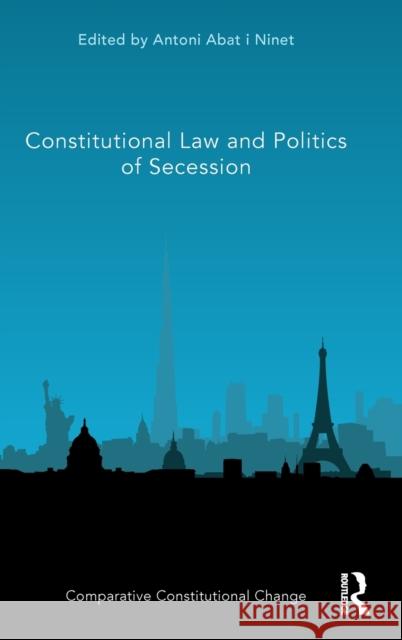Constitutional Law and Politics of Secession » książka
Constitutional Law and Politics of Secession
ISBN-13: 9781032318073 / Angielski
Constitutional Law and Politics of Secession
ISBN-13: 9781032318073 / Angielski
(netto: 792,97 VAT: 5%)
Najniższa cena z 30 dni: 774,06
ok. 22 dni roboczych.
Darmowa dostawa!
This collection presents an analysis of the concept of secession and its constitutional accommodation alongside an assessment of the effects of secession in constitutional and international law. The work proposes a new approach and insights to the existing literature that fill a gap from multidisciplinary and transdisciplinary perspectives.The book approaches the topics of secession, constitutionalism, and their relationship from both theoretical and empirical perspectives, including the analysis of particular secessionist examples, such as Catalonia, The Basque Country, Tigray, the Palestinian minority in Israel, Bosnia and Herzegovina, and the Mapuche Nation, from a comparative constitutional perspective. Elucidating these issues from different methodological and conceptual perspectives produces novelties in the scientific and constitutional debate. The interplay between constitutions, constitutional law and secession is indeed explored from philosophical, socio-legal, but also from strict constitutional law outlooks.Written by constitutional and public international law experts, the book will be of interest to students, academics and researchers working in the areas of constitutional law, legal theory, theory of the state, philosophy of law and political science.
This collection presents an analysis of the concept of secession and its constitutional accommodation alongside an assessment of the effects of secession in constitutional and international law. The work proposes a new approach and insights to the existing literature that fill a gap from multidisciplinary and transdisciplinary perspectives.
The book approaches the topics of secession, constitutionalism, and their relationship from both theoretical and empirical perspectives, including the analysis of particular secessionist examples, such as Catalonia, The Basque Country, Tigray, the Palestinian minority in Israel, Bosnia and Herzegovina, and the Mapuche Nation, from a comparative constitutional perspective. Elucidating these issues from different methodological and conceptual perspectives produces novelties in the scientific and constitutional debate. The interplay between constitutions, constitutional law and secession is indeed explored from philosophical, socio-legal, but also from strict constitutional law outlooks.
Written by constitutional and public international law experts, the book will be of interest to students, academics and researchers working in the areas of constitutional law, legal theory, theory of the state, philosophy of law and political science.











